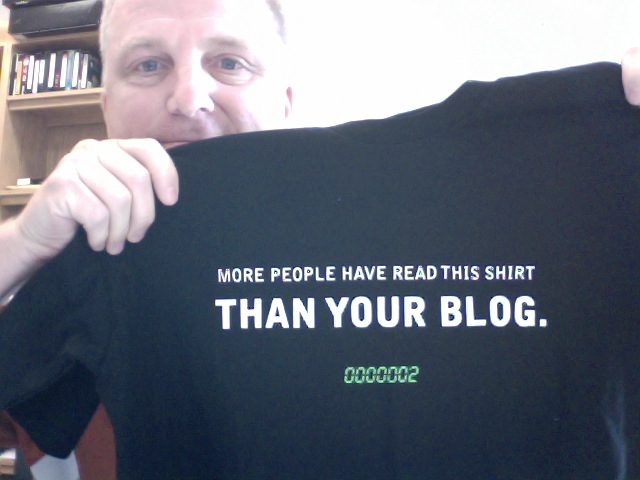My good friend George Couros gives me a hard time about this. He gives me a hard time about a lot of things. I like that. The truth is, it’s been a long time since I’ve read an educational book and in particular an educational book written in the last 5 years.
I’ve thought about this quite a bit and yet I hadn’t been able to fully articulate my own thinking on this until a recent conversation with Kristina Ishmael. (Disclaimer: We didn’t actually jump after we talked but we should have)

It’s not likely that it is because of a single reason so I’ll list a few. I’m not writing this to convince anyone of anything but perhaps this might alleviate some guilt folks about who for their own reasons, don’t find educational books particularly compelling. Keep in mind, I wrote a book and am grateful for those that have read it.
- I’m immersed in this work. Particularly in the last 10-15 years I’ve spent my work life not just as an educator, which I had for the previous 15 years, but immersed in conversation and thought around the topic. Unlike a classroom teacher, I’ve had the luxury of exploring lots of ideas and issues that most teachers can only do outside the regular day.
- Blogging. Creating a blog and writing opened up a brand new world for me. For me, connecting directly with others in the field offered a very personal, intimate, conversational way to learn. Books were limited and fixed ideas. Having direct access to authors spoiled me. Another aspect of blogging I value is that it’s highly personal. I like blogs that are specific and don’t try to make their learning universal. I like the unpolished, raw nature of blogging. Many times, when bloggers, including myself, write a book, the tendency is to make it less conversational and more prescriptive. Certainly, you can argue this isn’t always the case but too often people take their own learning and want so badly to make it accessible for others they resort to things like cute acronyms and frameworks that magically align to their learning. Again, I know they are just trying to be helpful and they certainly are helpful for many. I’m just voicing my own reality. I prefer folks sharing their learning in a less packaged way.
- I need another perspective. When your world revolves around education you can get pretty insular with the way you see the world. I take great pleasure in taking ideas that live outside of traditional education and seeing how they might be beneficial for classrooms and schools. I want to read someone who has had vastly different experiences than I’ve had.
Again, this is in no way a knock against all the great people who are writing and telling their stories through books. As someone who thinks of himself as a learner it would seem natural to be reading these books. So when I find myself disinterested, I need to ask why that is.
As a follow up to this post, I’ll share what it is I am reading .



